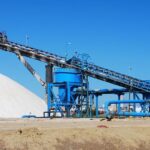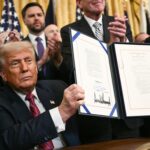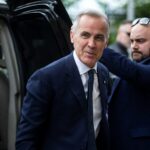As Quebec’s National Assembly adjourned for summer recess Friday, Premier François Legault drew a clear line in the sand regarding his government’s priorities for the remainder of 2024: economic recovery must take precedence over all other initiatives, including his long-promised constitutional negotiations with Ottawa.
“The economy will be our absolute priority this fall,” Legault declared during his end-of-session press conference at the legislature, acknowledging the province faces significant economic headwinds. Recent statistics have painted a troubling picture – Quebec’s GDP contracted by 0.4% in the fourth quarter of 2023, while unemployment rates have climbed to 5.8%, surpassing the national average.
The Premier’s economic focus represents a notable pivot from his previous emphasis on seeking additional powers from the federal government. When questioned about the status of his constitutional demands, Legault admitted the initiative has been placed on the back burner. “I’m not abandoning anything,” he insisted, “but economic challenges are more pressing at this moment.”
This strategic repositioning comes after what many political analysts describe as a challenging legislative session for the Coalition Avenir Québec (CAQ) government. Opposition parties have been relentless in their criticism of Legault’s handling of economic issues, with Liberal finance critic Carlos Leitão characterizing the government’s approach as “reactive rather than proactive.”
The Premier’s renewed economic focus is not without its political dimensions. Recent polling data from Léger Marketing shows the CAQ’s popularity has declined to 30%, a significant drop from the 41% support that secured their comfortable majority in 2022. Economic management, traditionally one of Legault’s perceived strengths, has become a vulnerability as Quebecers increasingly express concerns about affordability and job security.
Quebec’s Finance Minister Eric Girard outlined several economic initiatives planned for the fall session, including targeted tax relief for manufacturing businesses, expanded workforce training programs, and infrastructure investments concentrated in regions experiencing higher unemployment. “We need to make strategic investments that will deliver both immediate stimulus and long-term productivity gains,” Girard explained during a joint appearance with the Premier.
However, economic experts remain skeptical about the government’s ability to significantly reverse Quebec’s economic trajectory in the short term. Pierre Fortin, economist at the Université du Québec à Montréal, noted that “Quebec faces structural challenges including workforce shortages, productivity gaps, and integration issues for new immigrants that can’t be solved with quick fixes.”
The opposition parties were quick to characterize Legault’s economic pivot as politically motivated. Québec Solidaire co-spokesperson Gabriel Nadeau-Dubois dismissed the Premier’s announcements as “too little, too late,” arguing that “Quebecers are already feeling the pain of this government’s economic mismanagement.”
Parti Québécois leader Paul St-Pierre Plamondon struck a more conciliatory tone, offering conditional support for economic initiatives while warning that “any economic plan that doesn’t address Quebec’s chronic underfunding compared to other provinces is ultimately doomed to fail.”
As Quebec heads into the summer months, the political temperature remains high despite the legislative pause. Legault’s government faces mounting pressure to deliver tangible economic improvements before legislators return in September. The Premier’s ability to navigate these economic challenges may well determine whether his CAQ government can regain its political footing or continues its slide in public opinion.
The question now facing Quebecers: Can Legault’s government successfully pivot from constitutional ambitions to economic management, or will this shift be seen as abandoning the nationalist vision that helped bring CAQ to power in the first place?

























